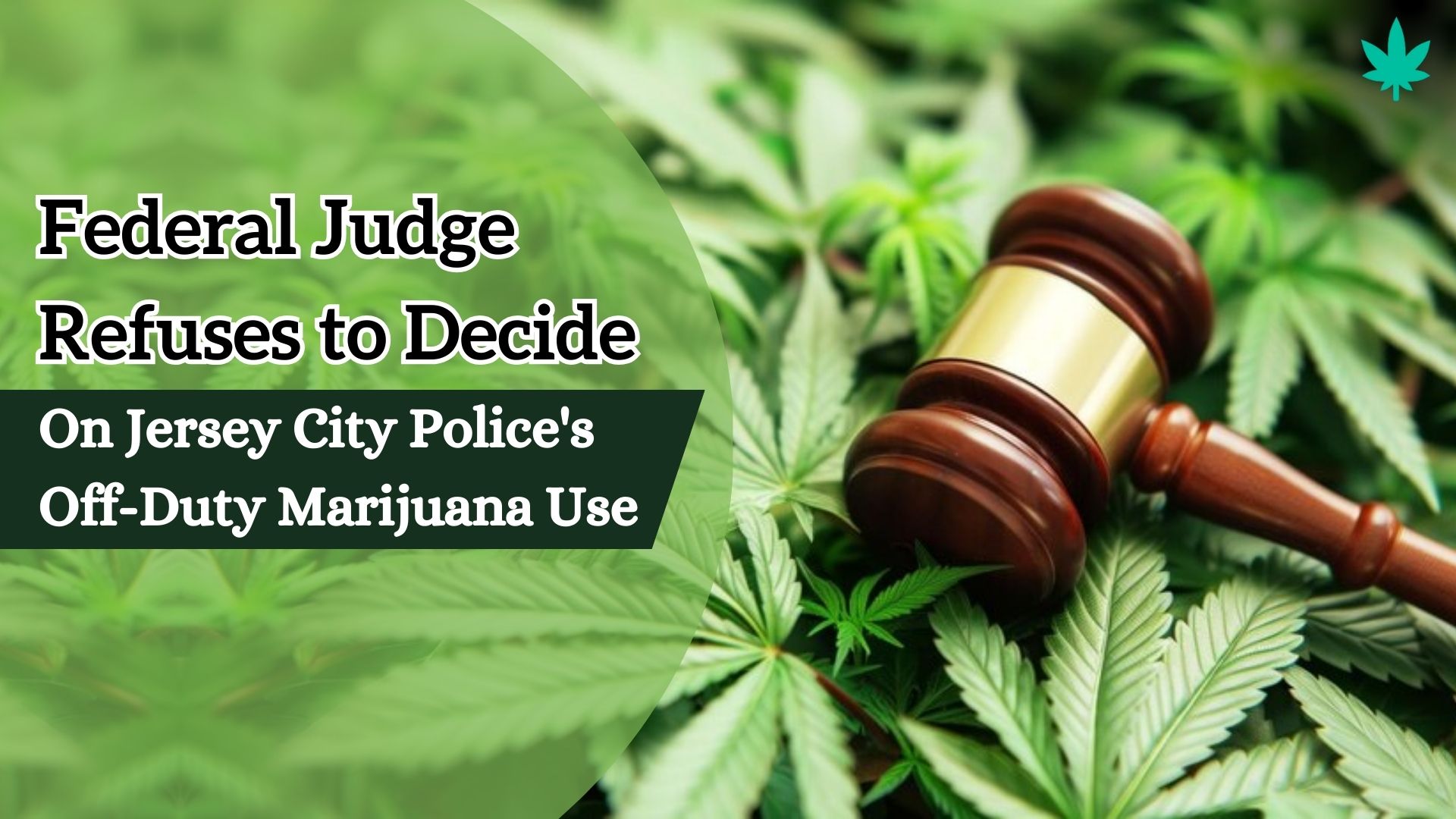In a recent and notable development, a federal judge has declined to make a ruling on whether Jersey City police officers are permitted to use marijuana while off duty. This decision has stirred considerable debate and raises significant questions about the intersection of law enforcement policies, cannabis legalization, and employee rights. As the legal landscape surrounding cannabis continues to evolve, this case highlights the complexities and ongoing challenges faced by both public officials and law enforcement agencies.
Background of the Case
The controversy began when Jersey City police officers sought clarification on their ability to use cannabis while off duty, especially in light of New Jersey’s recent legalization of recreational marijuana. New Jersey’s legalization, which was formally enacted in 2021, allows adults 21 and over to possess and use cannabis recreationally. However, the specifics of how this new law affects public employees, particularly law enforcement officers, have been subject to various interpretations.
Federal Judge's Decision
The federal judge’s decision to refrain from ruling on the matter leaves a significant gap in clarity. By choosing not to decide, the judge essentially avoids setting a legal precedent that could impact not only Jersey City but also other jurisdictions grappling with similar issues. This decision reflects a reluctance to wade into the contentious and rapidly changing area of cannabis law.
Implications for Jersey City Police
The decision not to rule means that Jersey City police officers will continue to operate under the current, somewhat ambiguous guidelines regarding off-duty cannabis use. This situation creates uncertainty among officers who may wish to partake in legal cannabis but are concerned about potential repercussions.
For the Jersey City Police Department, this ambiguity can pose challenges in maintaining uniform policies and ensuring that all officers are aware of and adhere to the department’s expectations. Without clear legal guidelines, the department might face difficulties in crafting policies that are both compliant with state laws and aligned with federal expectations.
Broader Impact on Law Enforcement Agencies
The refusal to make a ruling on this issue has broader implications beyond Jersey City. As cannabis legalization continues to spread across the United States, law enforcement agencies nationwide are grappling with similar questions. The need for clarity on cannabis use for public employees, especially those in law enforcement, is becoming increasingly pressing.
In states where recreational cannabis is legal, agencies are confronted with the challenge of integrating new cannabis regulations into their existing drug policies. This often involves creating new guidelines that balance legal cannabis use with the necessity of maintaining a drug-free workplace, particularly in roles that require high levels of reliability and integrity.
The Role of Legal Cannabis Stores
Legal cannabis stores play a significant role in the evolving cannabis landscape. As more states legalize recreational cannabis, these stores are becoming more prevalent, and their operations are subject to state-specific regulations. They serve as a crucial link between cannabis producers and consumers, and their presence can sometimes prompt questions about the broader impact of legalization on various sectors, including law enforcement.
For law enforcement agencies, legal cannabis stores represent both an opportunity and a challenge. They provide a controlled environment for legal cannabis sales, which can help mitigate the risks associated with illegal cannabis markets. However, they also necessitate ongoing adjustments to law enforcement policies and practices to accommodate the changing legal environment.
Navigating the Legal Landscape
For police departments and other public sector organizations, navigating the legal landscape of cannabis use is an ongoing challenge. Agencies must balance the need to respect the legal rights of individuals with the necessity of maintaining high standards of professionalism and public trust. This often involves careful consideration of state laws, federal regulations, and the specific needs of the organization.
One potential approach for addressing these challenges is to develop clear, comprehensive policies that provide guidance on cannabis use while considering both legal and practical implications. This can help ensure that officers understand their rights and responsibilities while maintaining the integrity and effectiveness of the police force.
Moving Forward
As the legal landscape surrounding cannabis continues to evolve, it is essential for public sector organizations, including law enforcement agencies, to stay informed and adaptable. The Jersey City case highlights the complexities of integrating cannabis legalization into existing frameworks and underscores the need for ongoing dialogue and policy development.
For individuals and organizations affected by these changes, it is crucial to seek legal counsel and stay updated on new developments. Engaging with legal experts and participating in discussions about best practices can help navigate the shifting landscape and ensure compliance with both state and federal regulations.
For more information on legal cannabis stores and the evolving cannabis landscape, visit state-specific resources or consult with legal experts who specialize in cannabis law.
Frequently Asked Questions
The case involved a legal challenge related to the use of cannabis by Jersey City police officers while off-duty. The central issue was whether the police department’s policies on off-duty cannabis use were legally enforceable and if they violated any rights or legal standards.
When a judge “sidesteps” a ruling, it means the judge avoided making a direct decision on the matter at hand. In this case, the judge may have avoided a ruling on the legality or enforceability of the police department’s policies regarding off-duty cannabis use, possibly due to procedural issues or the need for further information.
Off-duty cannabis use by police officers is significant because it raises questions about public safety, professional conduct, and the potential impact on job performance and integrity. Policies on this issue often reflect broader concerns about balancing personal freedoms with professional responsibilities.
The outcome of the case could impact how off-duty cannabis use is regulated among Jersey City police officers. If a ruling eventually addresses the issue, it could lead to changes in department policies, enforcement practices, or legal precedents that affect officers’ personal and professional conduct.
If the judge has sidestepped the ruling, the case may proceed with further legal actions. This could include additional hearings, motions, or appeals. Parties involved might seek clarification on legal standards or procedural requirements, and the matter may eventually be resolved in a higher court if necessary.




